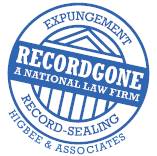On January 4, 2014, a New Jersey law that establishes a conditional dismissal program in the Municipal Courts for first-time offenders charged with certain disorderly persons offenses goes into effect. A defendant who successfully completes this program will be eligible to expunge his or her record six months after the case is dismissed.  The conditional dismissal program will supplement New Jersey’s existing diversion programs, which include pre-trial intervention (PTI) for certain indictable offenses in the Superior Court and conditional discharge for certain disorderly persons drug offenses in the municipal court.
The conditional dismissal program will supplement New Jersey’s existing diversion programs, which include pre-trial intervention (PTI) for certain indictable offenses in the Superior Court and conditional discharge for certain disorderly persons drug offenses in the municipal court.
A defendant, who is charged with a petty disorderly persons offense or a disorderly persons offense, can apply to enter the conditional dismissal program if he or she: (1) has not been previously convicted of any petty disorderly persons offense, disorderly persons offense or crime and (2) has not previously participated in the conditional discharge, conditional dismissal, or PTI programs. The conditional dismissal program will fill a large gap in the New Jersey municipal courts, because there is currently no diversionary program available to those charged with disorderly persons offenses that are not drug-related.
How Conditional Dismissal Expands the Expungement Law
In addition to creating the conditional dismissal program, the law also amends N.J.S.A. 2C:52-6, the section of New Jersey’s expungement law governing arrests not resulting in conviction. An individual who has had charges dismissed pursuant to the conditional dismissal program will be able apply for an expungement six months after the case is dismissed. The current expungement law provides for expungement of charges dismissed pursuant to PTI and conditional discharge, and, for expungement purposes, conditional dismissal will be treated the same as those other programs.
At the end of the conditional dismissal term, the court can dismiss the proceedings if the defendant has not been convicted of any subsequent offense and has complied with all the terms and conditions imposed by the court. If a defendant is convicted of any petty disorderly persons offense, disorderly persons offense or crime, or otherwise fails to comply with the terms and conditions imposed, the court can enter a judgment of conviction in accordance with the defendant’s prior guilty plea or prior finding of guilt.
Those charged with the following offenses are ineligible for participation in the conditional dismissal program: domestic violence offenses; driving under the influence of alcohol or drugs; drug offenses (because they are eligible for diversion under the conditional discharge statute); offenses involving organized criminal or gang activity, a continuing criminal business or enterprise, or a breach of the public trust by a public officer or employee; offenses against an elderly, disabled or minor person; and violations of animal cruelty laws.
If a defendant is eligible under the statute, the court has discretion when deciding if he or she should be approved to participate in the program. The court will consider factors such as the nature of the offense, the defendant’s background, and the interests of the victim and the public. After considering these factors and the prosecutor’s recommendation, the court may place the defendant under a probation “monitoring” status for one year. The judge may also impose financial obligations and other terms and conditions as part of the program.
This is a great step for New Jersey, because the law will allow first-time offenders charged with a low-level offense to complete a short period of supervision, pay off the fines, and then just six months later have the record expunged from their criminal record. Currently, there is a five-year waiting period for expungement of petty disorderly persons offense and disorderly persons offense convictions. Under the new conditional dismissal program, these one-time, low-level offenders will be able to move forward much more quickly and without the consequences of a conviction.
Conditional dismissal will only be available to those who commit the offense on or after the effective date, January 4, 2014.
You can read the full text of the law here.



